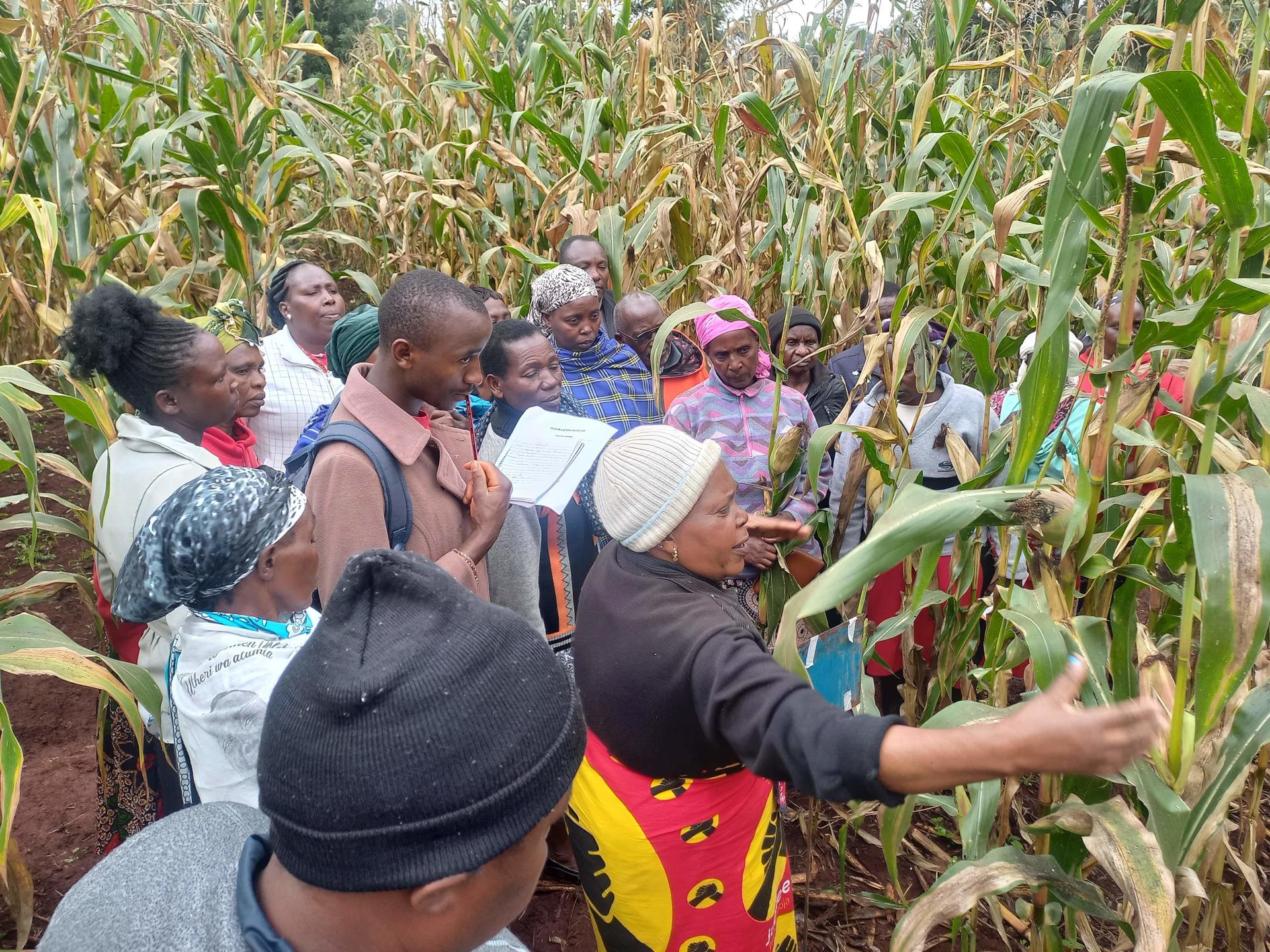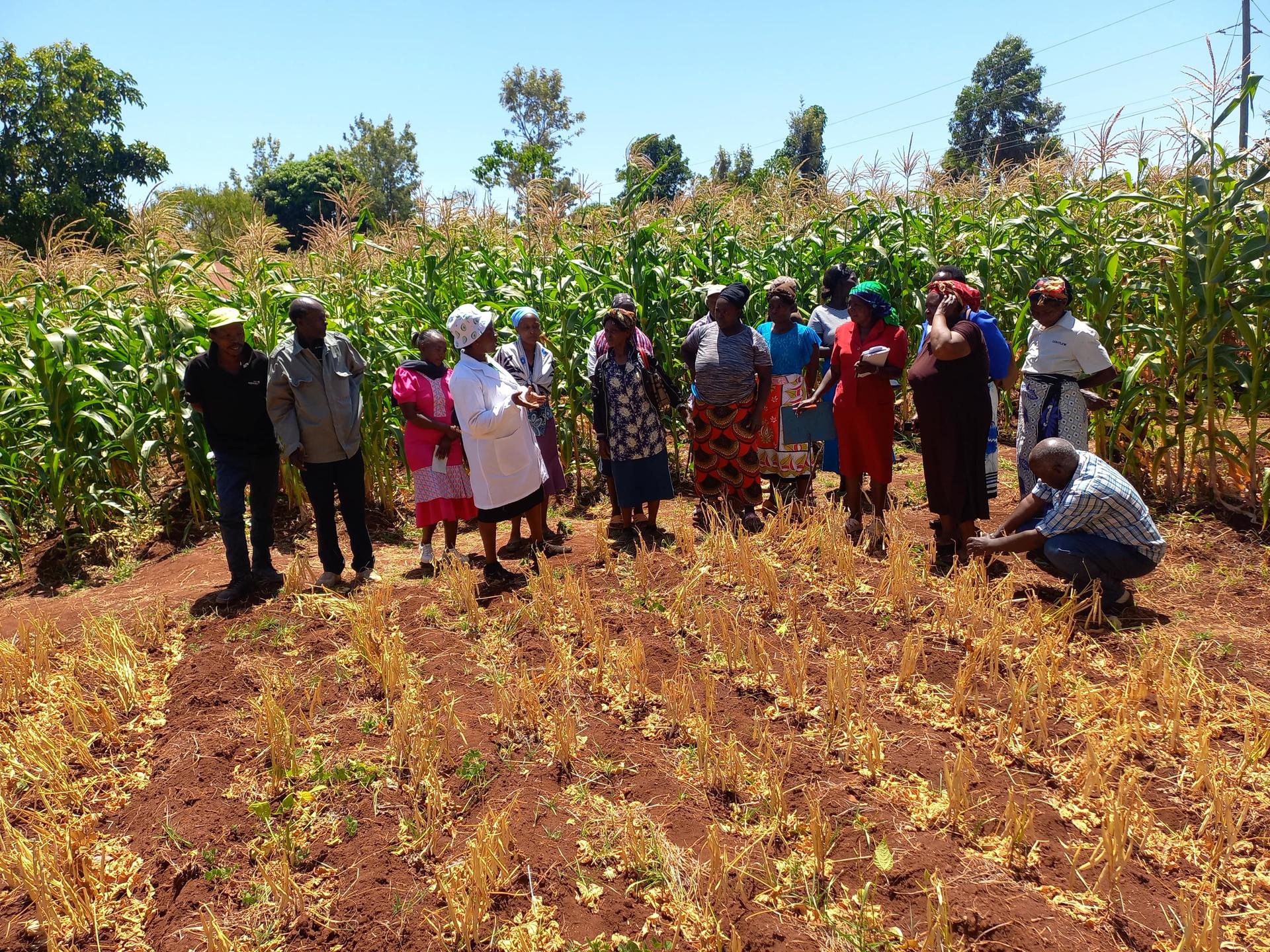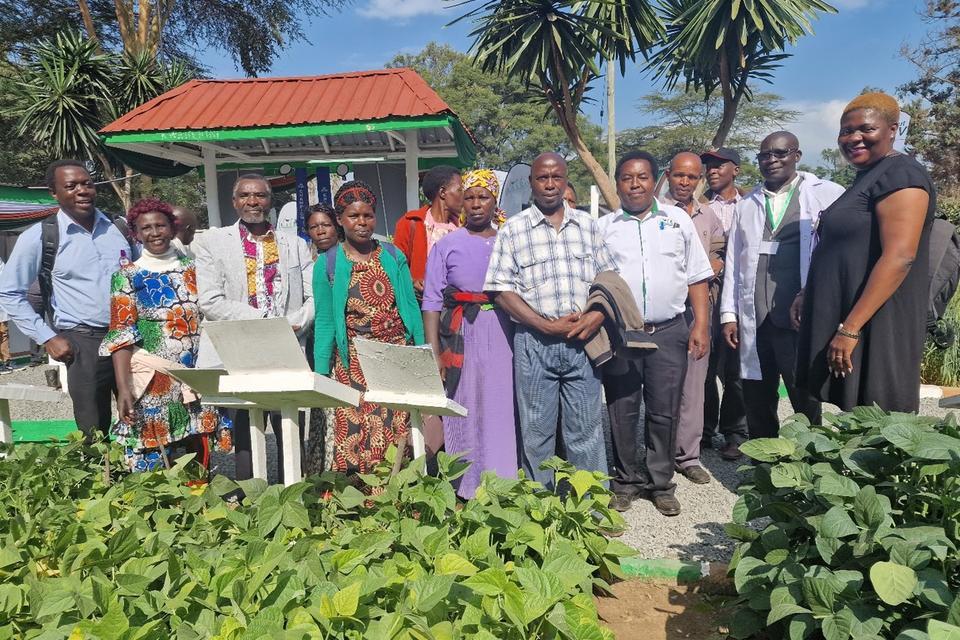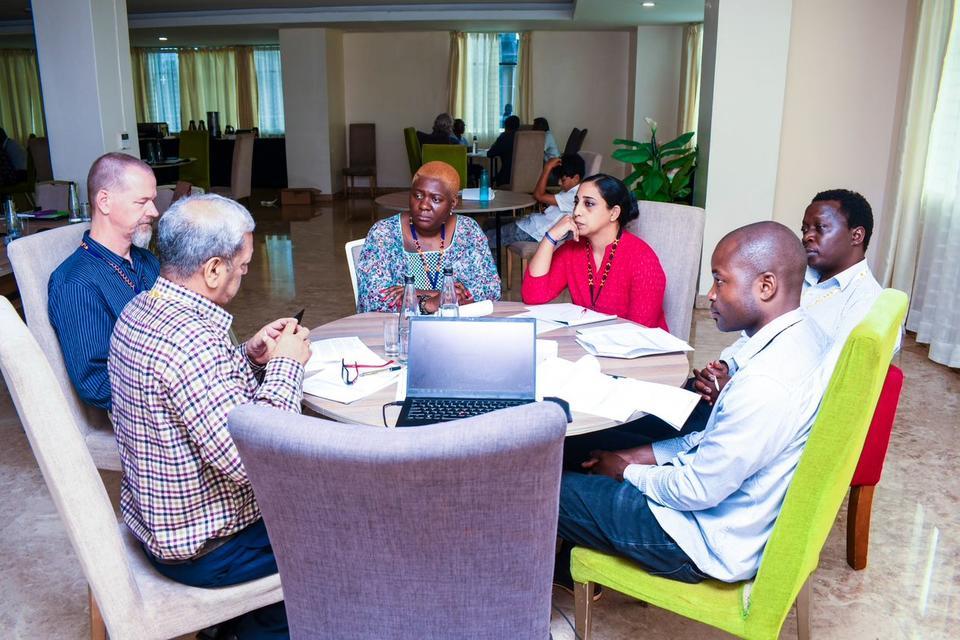Blog Co-design and learning around diversification for resilient agrifood systems in Kenya

Co-design and bundling various approaches are critical for facilitating information exchange and learning that are essential for wider adoption of sustainable intensification and climate smart agriculture technologies and practices. This blog highlights how this is being done under Ukama Ustawi in Embu County, Kenya.
By: Boaz Waswa, Catherine Muriithi, Miriam Nyokabi, Eliud Kagete, Alfred Micheni, Patrick Ooro
Year in year out, I relied on maize which would fail due to extended droughts and unpredictable rainy seasons, and this would leave us hungry. However, for the past two seasons, using crop diversification and water management technologies, I can harvest beans then follow it up with maize. My family is assured of food, commented Mary Mbuya of Runyenjes, Embu County.
Maize-mixed systems cover over 75% of the cropping land in Kenya, with smallholders dominating the farming systems. Unfortunately, the maize-growing area faces occasional drought stress, resulting in yield losses, in some instances up to 100%. Without alternatives livelihoods, many households have been left at the blink of starvation. The threat of climate change has generated a deep desire to build resilience to the maize faming systems through crop diversification.
Crop diversification seeks to promote crop diversity by crop rotation, multiple cropping, or intercropping, with the goal of improving productivity, sustainability, and supply of ecological systems. Diversifying systems entails using varieties and seeds adapted to local climate and pests, sustainable mechanization, applying soil and water conservation practices, improve water management and investing in agricultural knowledge application.
Crop diversification has proven beneficial not just because it’s an innovative farming technique, but also because it manages to overcome a lot of farming problems caused by changing environment, noted Dr. Boaz Waswa, Ukama Ustawi WP 1 Kenya Lead.
The Alliance-CIAT, working with Kenya Agricultural and Livestock Research Organization (KALRO), is implementing Ukama Ustawi (UU): Diversification for Resilient Agri-food in East and Southern Africa, that aims to help millions of smallholders intensify, diversify and de-risk maize-mixed farming through improved extension services, institutional capacity strengthening, targeted farm management bundles, policy support, enterprise development and private investment. The Ukama Ustawi activities in Kenya are being implemented in Nakuru, Embu, Narok, Kakamega and Makueni Counties.
Through the Initiative, KALRO and the farmer groups in Embu County in eastern Kenya used the Mother & Baby Approach to facilitate learning around diversified and resilient cropping systems. Mother & Baby approach is a trial design, and one approach of conducting on-farm participatory action research. The approach facilitates conversations among farmers, extension, and researchers around new innovations.
Using this approach, KALRO researchers and the farmers in Embu County established 6 mother demos on Lead Farmers fields showcasing a set of diverse crop diversification technologies integrating maize and legumes under monocropping, rotation, intercropping and strip cropping systems and complementary technologies include use of manure and fertilizer, furrows, planting pits, mulch and other good agronomic practices. Beyond the mother demos, other farmers established 176 Baby demos on their farms with one or two preferred technologies of their choice. Baby demos serve for own farmer validation and scaling of the promising and preferred technologies. The technologies have been summarized in a easy-to-read brochure that is available to share with the farmers.
Over the two cropping seasons, the farmers, extension, and researchers interacted learning around the technologies. Farmer field days were recently held at two of the mother demo sites in Kirangano village in Runyenjes Sub County and Gichegeri in Manyatta Sub County enabling further farmer-to-farmer learning. The field days drew in over 231 participants including farmers, county agriculture officers, NGOs and private agroinput dealers of whom 160 were women and 71 men.

Farmers at the mother demonstration in Embu County, Kenya. Credit: Boaz Waswa
One major benefit of the Mother & Baby Approach is seeing the Lead Farmers using the skills and knowledge gained to train other farmers on the diverse technologies and their benefits, noted Catherine Mureithi, the KALRO Lead Scientist.
During the field days, the farmers evaluated the technologies with majority preferring the MBILI MBILI and strip cropping systems. MBILI MBILI is a Kiswahili term referring to the alternating two rows of cereal with two rows of legume while strip cropping involves planting alternating broad strips of several crops in the field. The choice of these two cropping systems was because they posed less competition, ensured sufficient crop harvest of both legume and cereal, are less labour intensive and easier to carry out the other crop management operations such as weeding, spraying and targeted fertilizer application.
Surely, there is no useless or little rainfall. It just depends on how you capture it in the soil to give you a good harvest, observed John Kinyua, a farmer from Gichegeri, Manyatta, Embu.
The field days were aired on local vernacular radio stations such as Inooro, Kameme and Imwaro, as well as TV stations such as Kameme and HOPE TV, all with an audience of over 500,000 people in the eastern region and across the country. As part of exposure and learning, the project facilitated 18 farmers to attend the regional agricultural show at Embu to learn about innovations in agriculture sector.

Boaz S. Waswa
Scientist
Bundling various approaches is part of the strategy the project is using to enhance information exchange and learning that are essential for wider adoption of sustainable intensification and climate smart agriculture technologies and practices, observed Boaz Waswa.
The Ukama Ustawi learning sites in Embu and other sites in Kenya are providing a valuable platform for co-design and learning with farmers. By working with diverse partners, the Initiative is also building a scaling environment for diversified and resilient agrifood systems.
This work was carried out with support from the CGIAR initiative, Ukama Ustawi (UU): Diversification for Resilient Agri-food in East and Southern Africa, and we would like to thank all the funders who support this research through their contributions to the CGIAR Trust Fund.
learn more about Ukama Ustawi and other initiatives in the CGIAR research portfolio


